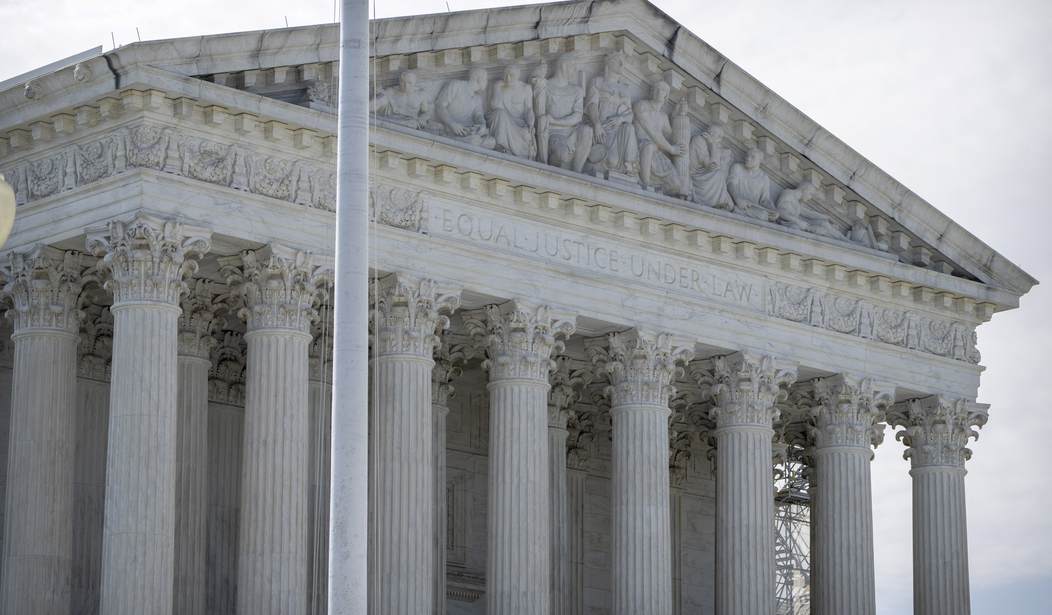Homelessness, unfortunately, has become a persistent and growing problem in the United States.
The Supreme Court, in City of Grants Pass v. Johnson, just dealt with one big issue associated with this problem -- the ability of cities to prohibit camping on public property.
Per the city of Grants Pass, Oregon, the answer has been that the municipality can prohibit such activity. Violators are subject to fines and jail time.
This prohibition was challenged by homeless advocates, arguing that, per a 2018 decision of the Ninth Circuit Appeals Court, such prohibitions violate the Eighth Amendment prohibition of cruel and unusual punishment.
The court, in an ideological breakout of the six conservatives against the three liberals, ruled in favor of the right of the city to prohibit such activity, whether done by a homeless person or anyone else.
The reasoning on both sides highlights the very different way conservatives and liberals see the world and understand our constitution.
The majority opinion, written by Justice Neil Gorsuch, argues that the Eighth Amendment is not relevant here because the issue is about prohibition of, and penalties on, a given activity and not about the appropriateness of a given punishment following a criminal conviction. That is, the issue is camping on public property. It doesn't matter who is doing it or why.
Writing for the dissenting minority, Justice Sonia Sotomayor argues that the decision criminalizes homelessness and penalizes someone for essential activity for which they have no choice, and hence the Eighth Amendment prohibition of cruel and unusual punishment is relevant.
Recommended
Per Sotomayor, "Sleep is a biological necessity, not a crime. For some people, sleeping outside is their only option. ... For people with no access to shelter, that punishes them for being homeless. That is unconscionable and unconstitutional. Punishing people for their status is 'cruel and unusual' under the Eighth Amendment."
Sotomayor continues that the majority, "focuses almost exclusively on the needs of local governments and leaves the most vulnerable in our society with an impossible choice: either stay awake or be arrested."
I work in Washington, D.C. Per a recent compilation by U.S. News and World Report, Washington, D.C., is 15th among cities in the nation in incidence of homelessness.
I leave my building in the morning and return in the evening. I have to encounter the unpleasantness of homeless individuals who with some frequency attempt to engage me.
When Sotomayor says that the court "focuses almost exclusively on the needs of local government," she speaks as if local government is an entity unto itself, independent of the local citizens it represents.
Perhaps Sotomayor needs to reread our Declaration of Independence that, after noting the rights with which individuals are endowed, notes that "to secure these Rights, Governments are instituted among men, deriving their Just powers from the Consent of the Governed."
Local governments represent local citizenry. The public space they create and protect are for local citizens, not for government. When the city of Grants Pass, or any other city, prohibits unseemly camping on public property, they are protecting local citizens from visual, and sometimes physical violations of their life and rights.
What we do know is homelessness keeps growing. California, which has almost 30% of the nation's homeless, has spent $20 billion on the problem over the last five years yet still saw an increase of 6% in 2023, and the incidence is 53% above where it stood in 2013.
Per HUD, homelessness nationally stood at 650,000 at year end 2023, up 12% from 2022.
Hopefully this important decision will help move homelessness away from the failed one-size-fits-all government answers and return the problem to private charities, who are equipped to deal with the complexity of this issue and the unique problems of different individuals.
























Join the conversation as a VIP Member